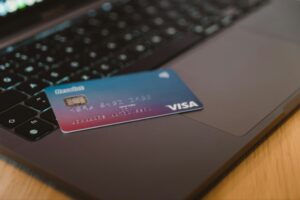Flashcards have stood the test of time as an effective learning tool. Whether you’re mastering a new language, cramming for an exam, or diving into complex topics, flashcards can simplify information, making it more digestible and easier to remember.
But how do you maximize their potential? Let’s dive into the art of using flashcards to enhance your study sessions.
Understanding the Magic of Flashcards
Flashcards harness the power of active recall. Instead of passively reading through notes, you’re forced to recall information from memory, strengthening neural connections. Additionally, they’re portable and convenient, making it easy to squeeze in quick study sessions anytime, anywhere.
Creating Effective Flashcards
Crafting your own flashcards is a pivotal part of the learning process. While it might be tempting to use pre-made cards or borrow a friend’s set, the act of making your own allows you to process the information firsthand.
More so, it is not that complicated – you can pick a blank flashcard template and create your own set of cards for learning.
By translating what you’ve learned into your own words and deciding what goes on each card, you’re already beginning the process of understanding and memorization. This initial engagement with the material makes the subsequent review sessions more effective.
In essence, the creation of the flashcards is as much a part of the learning experience as using them. Here are a few more tips to follow:
- Be concise: Each card should represent a single idea, fact, or concept. Avoid cramming too much information onto one card.
- Use visuals: A picture is worth a thousand words. Whenever possible, incorporate diagrams, symbols, or doodles to represent concepts. This taps into your brain’s visual memory.
- Personalize them: Make your cards memorable. Use colors, stickers, or even funny mnemonics. The more unique, the better they’ll stick in your memory.
Digital Flashcards
While traditional paper flashcards are excellent, digital platforms have taken the flashcard experience to a new level. They offer features like spaced repetition algorithms, multimedia integration, and the ability to share and access decks created by other users worldwide.
Strategies for Studying with Flashcards
Flashcards are a versatile study tool, but their effectiveness is often determined by how you use them. To get the most value from them, it’s essential to incorporate varied study strategies. This keeps your brain engaged and helps remember the information more effectively.
Here are several strategies to elevate your flashcard studying sessions:
Spaced Repetition
This technique involves reviewing cards at increasing intervals. Begin by studying a set of cards. The ones you get right move to a longer interval (maybe a day later), while the ones you get wrong should be reviewed more immediately.
Over time, cards you consistently remember are reviewed less frequently, while challenging ones get more attention.
Chunking
Group your flashcards by related topics or themes. Instead of mixing all subjects or chapters together, study in chunks. This helps you make connections between related concepts.
Active Recall
This is the essence of flashcards. Read the question side and actively try to recall the answer before flipping the card. Actively trying to remember strengthens your memory of the information.
Metacognitive Feedback
After answering a card, don’t just move to the next one. Take a moment to reflect on how confident you were in your answer, and if it was correct, why? If it was wrong, where did your thought process veer off?
Shuffling
Regularly shuffle your cards. This ensures you’re not just memorizing the order of cards but genuinely understanding each fact or concept on its own merit.
Teach Someone

Use the flashcards to teach a concept to someone else, like a study buddy or even an imaginary class. This not only tests your understanding but also reinforces your knowledge.
Storytelling
For complex subjects or sequences, try creating a narrative or story around the cards. This taps into our innate love for stories, making it easier to remember sequences or related concepts.
Combine Visual and Verbal
For some cards, especially those that tackle complex ideas, try recalling the answer out loud, even if you’ve written it down. This combines visual and auditory memory, reinforcing the concept.
Review and Revise
Remember, flashcards are dynamic. As you progress in your studies, you might find certain cards too easy or perhaps lacking in detail. It’s essential to revisit and revise your deck, removing cards that are no longer challenging and adding new ones as you encounter fresh material.
Conclusion
Flashcards, when used effectively, can be a game-changer in your study routine. They transform passive reading into active learning, making study sessions more engaging and productive.
Whether you’re a student looking to ace your next exam or a lifelong learner exploring new subjects, flashcards can be your key to unlocking efficient and lasting learning.





